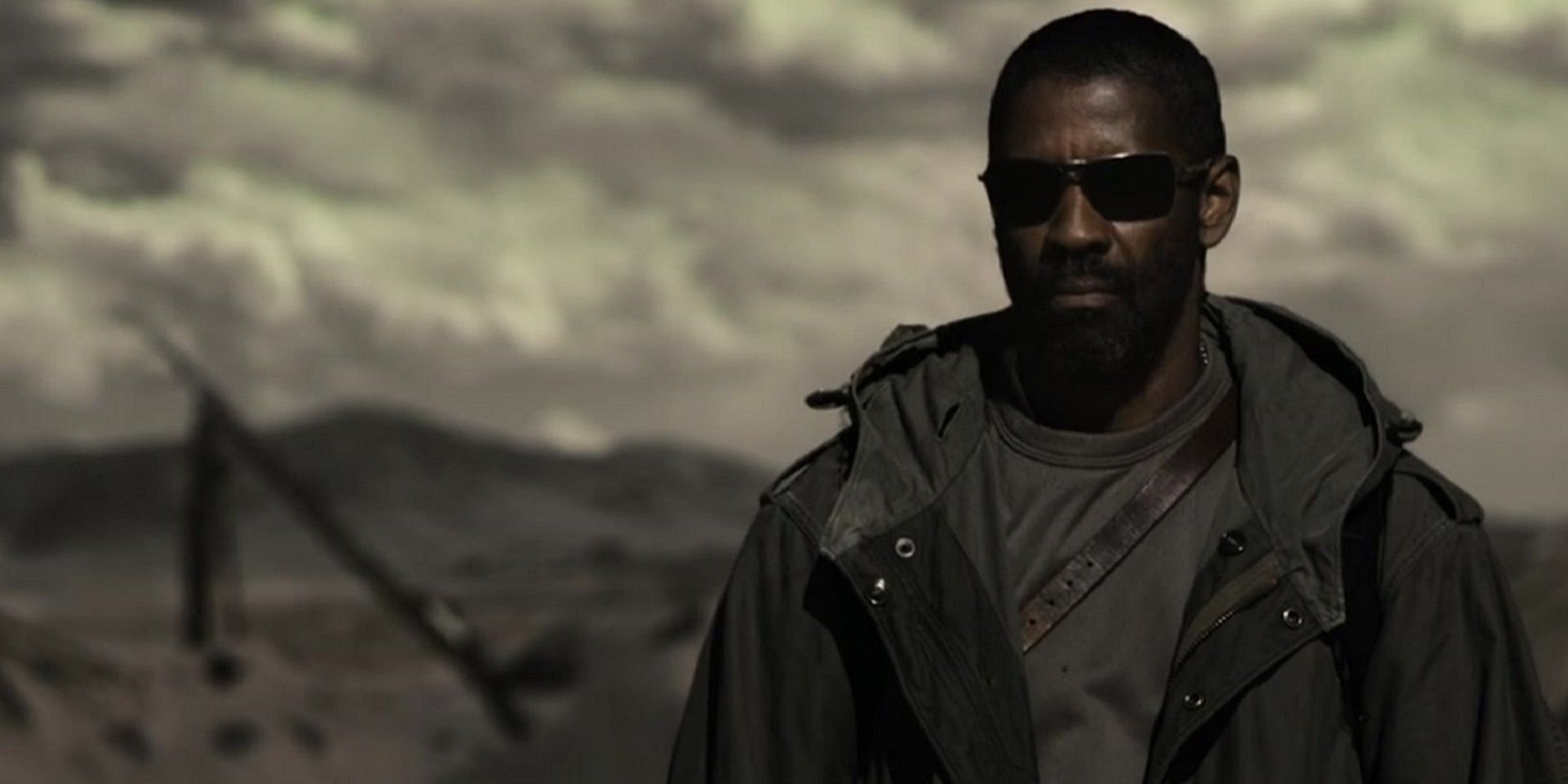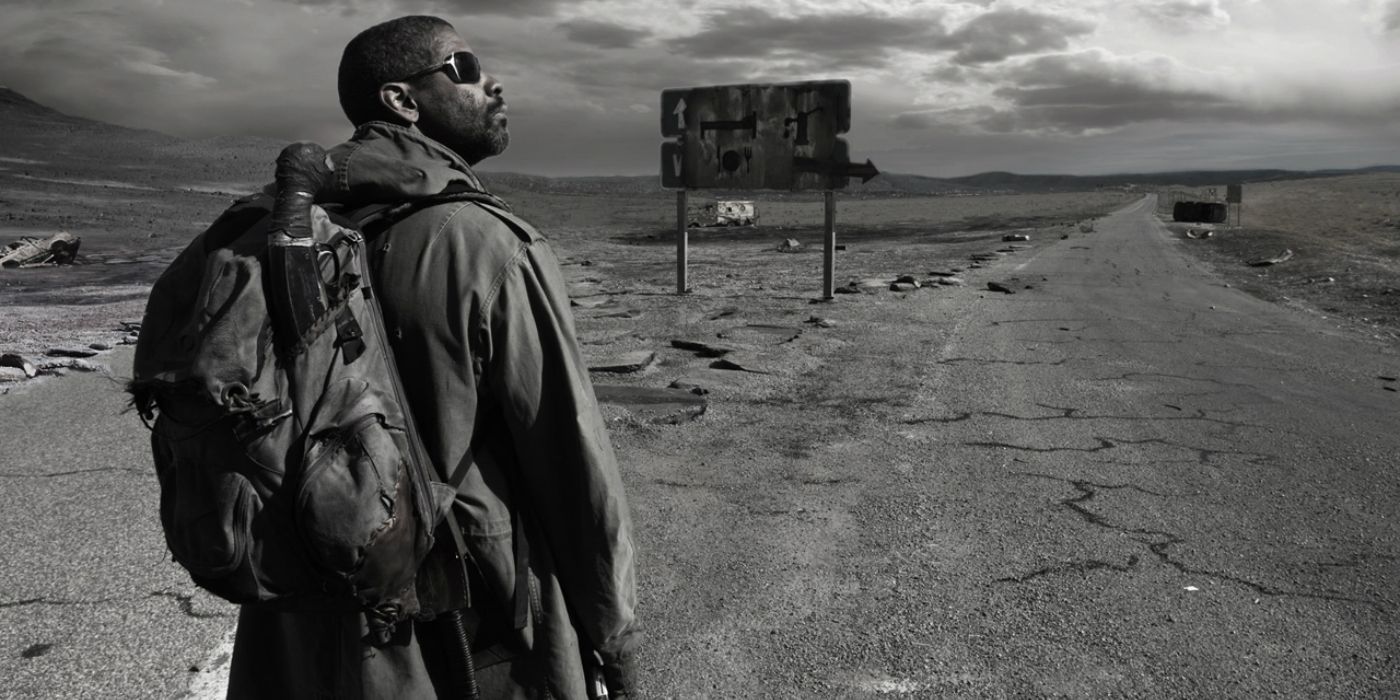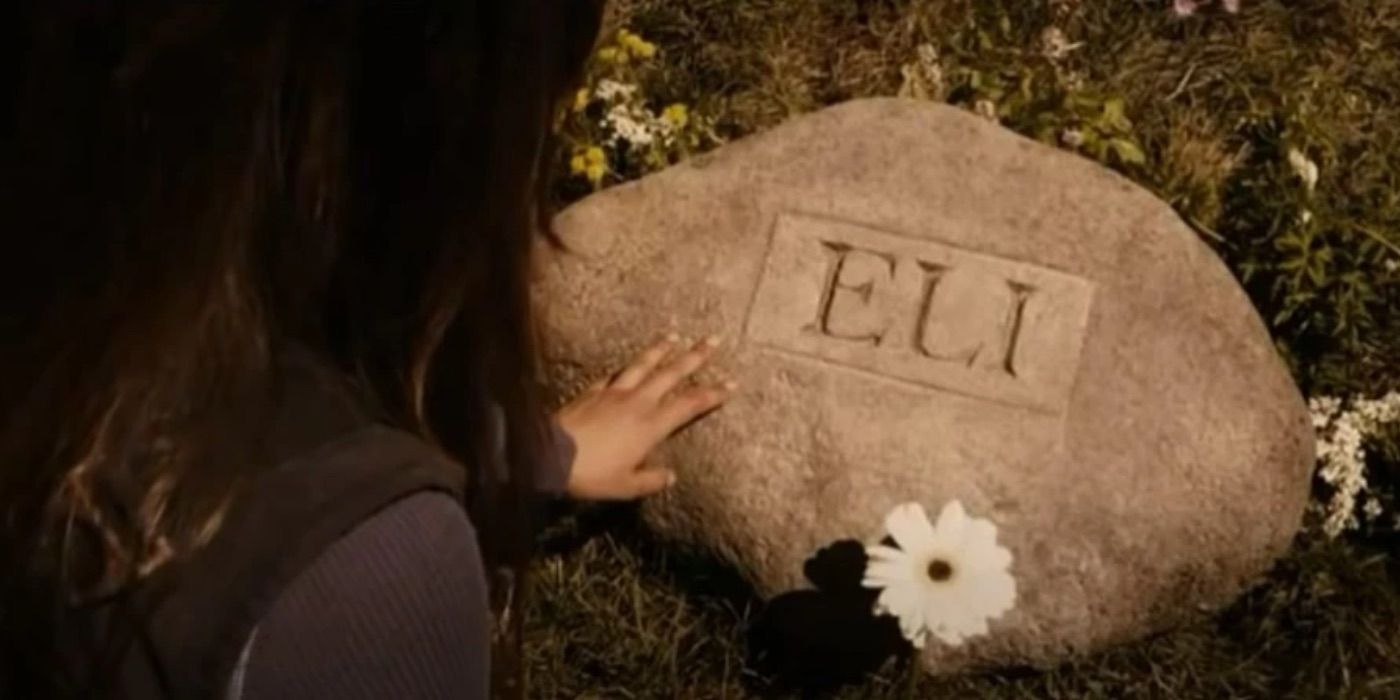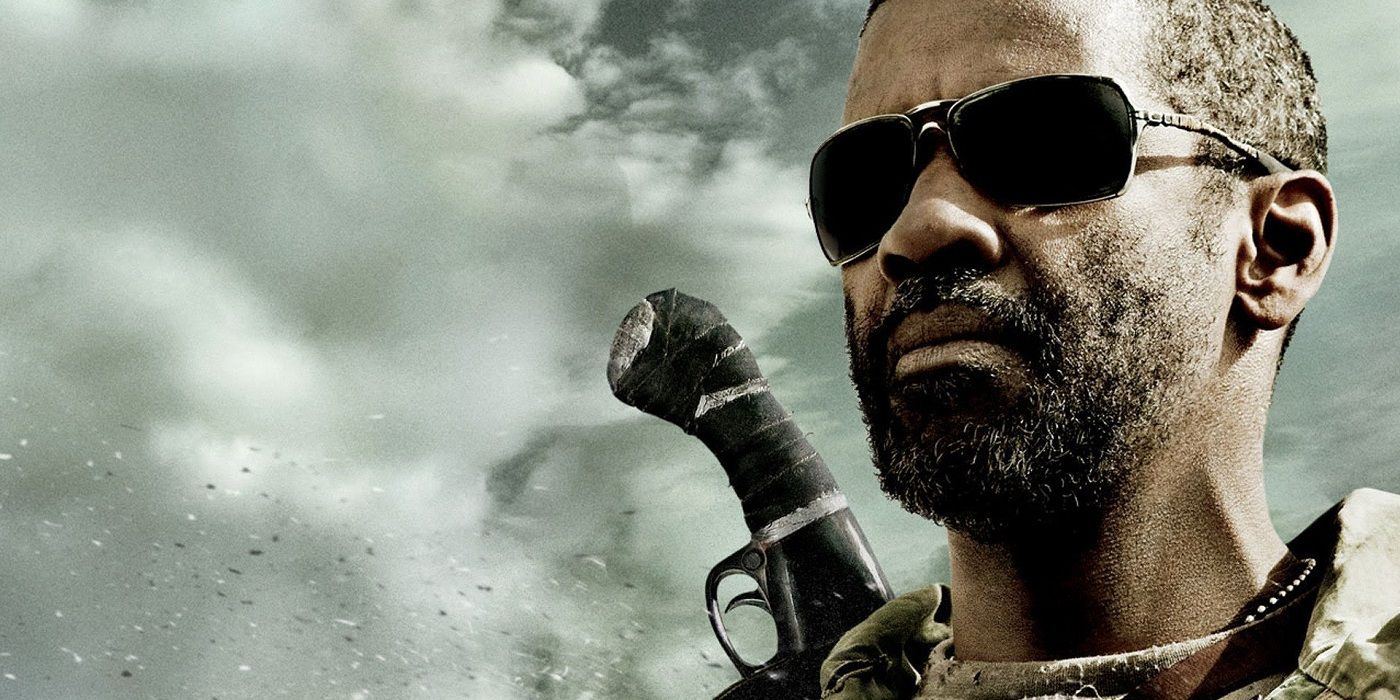
Unpacking the Ending of The Book of Eli: A Deeper Look

The ending of 2010's post-apocalyptic action movie The Book of Eli is steeped in deeper meaning and features a shocking twist. The Book of Eli follows Denzel Washington as the titular Eli, a rugged survivor traversing a post-apocalyptic wasteland in possession of a mysterious book that it's quickly apparent many are willing to kill for. Though the average critical response was negative, some praised The Book of Eli's gripping plot and exciting twist on the post-apocalyptic genre. Even among a wealth of other films tackling the same subject, The Book of Eli manages to world-build in a way that is constantly compelling, and the movie grossed over $150 million (via Box Office Mojo). The Book of Eli surprises viewers with a bounty of twists while never turning its back on the strong use of symbolism that carries throughout the plot. This heavy thematic depth also means the Book of Eli ending leaves plenty to unpack, a fact responsible for its cult success over a decade after its debut.
Lombardi Learns Why Only Eli Could Be Trusted To Carry The Book
After securing the book — which is revealed to be an intact copy of the Bible — at the end of The Book of Eli, the evil Bill Carnegie (Gary Oldman) returns to his town and enlists the help of the Engineer (Tom Waits) to break the lock that holds it closed. Meanwhile, Eli and Solara (Mila Kunis) arrive in the remains of San Francisco, and row out to Alcatraz Island where they are greeted by Lombardi (Malcolm McDowell) and his people who are working to preserve the sum of human knowledge that came before the nuclear holocaust that wiped out civilization.
Denzel Washington in a post-apocalyptic wasteland in The Book of Eli
Carnegie manages to get Eli's Bible open only to discover that it was written in braille and there is no way he can read it. Though he loses the Bible in the fight with Carnegie, Eli remembers its entire contents by heart and can recount the words to Lombardi, who eagerly begins writing everything down. Back in town, Carnegie is confronted by Claudia, who refuses to translate the braille for him, and alerts him that his quest to secure the book has led him to lose control of his city.
Book of Eli - Denzel Washington
After recounting the Bible in its entirety, Eli eventually dies, and the freshly printed Bible is placed among a shelf full of other holy books in the final scenes of The Book of Eli. Solara opts not to stay at the Alcatraz sanctuary and takes Eli's sword as she returns home across the wasteland.
Solara visits Eli's grave in The Book of Eli
The ending of The Book of Eli is a powerful commentary on the preservation of knowledge and the significance of sacrifice. It highlights the value of wisdom and the impact it can have on the future of humanity, as well as the enduring legacy of faith and devotion.
Lombardi Learns Why Only Eli Could Be Trusted To Carry The Book
Eli Is Revealed To Be Blind
The revelation of Eli's blindness in the ending of The Book of Eli adds a profound layer of complexity to the character and the narrative. It reshapes the entire journey and provides a deeper understanding of Eli's actions and beliefs throughout the film. The twist not only serves as a poignant revelation but also enhances the thematic depth of the story, elevating it from a mere post-apocalyptic action movie to a thought-provoking exploration of faith and perseverance.
Eli Reads the Bible in The Book of Eli
Eli's blindness is a metaphorical embodiment of faith, symbolizing the unwavering commitment to a higher purpose despite the inability to physically perceive the world. It underscores the power of belief and resilience, reinforcing the central themes of the movie and offering a compelling reinterpretation of Eli's character.
Denzel Washington looking to the distance in a promo image for The Book of Eli.
The portrayal of Eli as a blind protagonist challenges traditional notions of heroism and presents a unique perspective on the representation of strength and determination. It redefines the archetype of the action hero and imbues the character with a profound sense of spiritual fortitude, transcending the limitations of physical sight.
Ray Stevenson as Redridge, wearing sunglasses and looking menacing in The Book of Eli.
Eli's Death Represents The Power Of Sacrifice
The poignant conclusion of The Book of Eli culminates in the sacrificial death of the protagonist, Eli. His ultimate act of selflessness and devotion exemplifies the enduring significance of sacrifice and its transformative impact on the narrative. Eli's death transcends mere mortality, serving as a testament to the unwavering strength of his convictions and the profound influence of his legacy.
The parallels drawn between Eli's sacrifice and the religious martyrs of history accentuate the thematic resonance of the film, weaving a poignant tapestry of faith and resilience. Eli's selfless act mirrors the timeless narratives of martyrdom, infusing the story with enduring symbolism and spiritual depth.
Solara looks concerned while captured in The Book of Eli
The portrayal of Eli's death as a deliberate and meaningful choice underscores the thematic exploration of faith and devotion, resonating with the profound themes of the movie and leaving a lasting impression on the audience. The significance of sacrifice permeates the narrative, underscoring the transformative power of unwavering commitment and the enduring legacy of faith.
The Book Of Eli's Real Meaning
The Book of Eli transcends its post-apocalyptic setting to deliver a compelling exploration of the power and dangers of knowledge. The narrative unfolds as a cautionary tale, highlighting the potential for knowledge to be manipulated for both benevolent and malevolent purposes. The central conflict between the preservation of wisdom and its exploitation underscores the profound implications of knowledge in shaping the course of humanity.
The juxtaposition of opposing ideologies represented by Carnegie and Lombardi serves as a thematic anchor, emphasizing the moral and ethical dimensions of knowledge and its implications for societal evolution. The nuanced portrayal of the Bible as a symbol of knowledge and its utilization as a tool for control underscores the multifaceted nature of wisdom and its impact on human civilization.
The real meaning of The Book of Eli lies in its poignant commentary on the power of ideas and the ethical responsibility inherent in the pursuit of knowledge. The film transcends its genre trappings to deliver a thought-provoking narrative that resonates with profound themes of faith, morality, and the enduring legacy of wisdom.





















